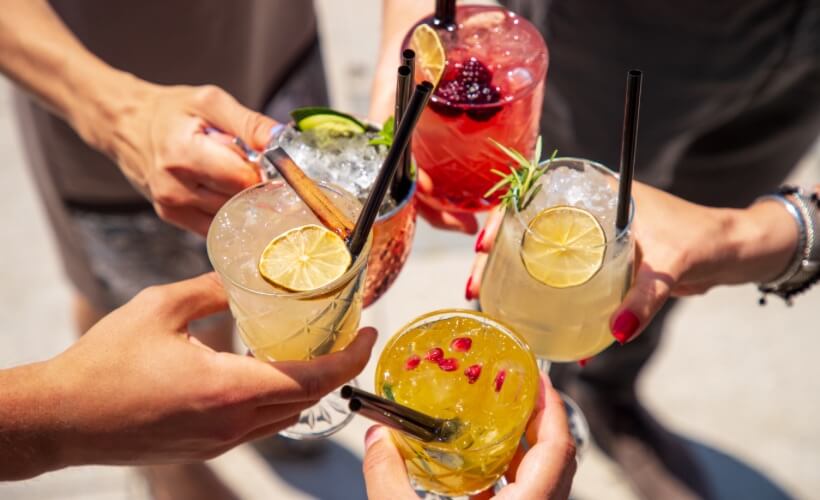Cameron Roberts uncovers a rising trend of non-drinkers at events and how planners are meeting these needs.
In times gone by, it would be fair to assess the events industry was fuelled by alcohol, late nights and regretful mornings.
But what it means to attend an event is changing, a rise in those not drinking and attendees being more selective in what they want from an event, is providing impetus for organisers to explore non-alcoholic drinks options.
In response to this trend, Conference News ran a survey of event planners, aiming to find out whether this trend is just hot air and what organisers are doing to accommodate those who do not consume alcohol at events. The survey included both quantitative questions regarding the pervasiveness of alcohol at events, but also qualitative ones delving into the reasoning behind these decisions.
The trend
It’s easy enough to say that there’s a rising demand for more non-alcoholic drinks options at events, but where’s the evidence?
In our survey, 89% of respondents either agreed or strongly agreed that the desire for broader non-alcoholic drinks options at events has increased over the last 12 months. While it’s not conclusive proof that the population at large is going to abandon pubs en-masse, it’s a good indication that event planners are noticing delegates are asking for these options.
One respondent lamented the lack of diverse drinks options when attending events, saying: “Many [attendees] are cutting back on alcohol and those that don’t drink are bored of being offered basic options like water, orange juice or a fizzy drink (if they’re lucky).”
The classic examples orange juice and sparkling water were brought up numerous times in the open answers of our survey. Another respondent said: “I don’t drink alcohol and I am so tired of being offered orange juice or sparkling water when everyone else is drinking flutes of champagne.”
With so many of our respondents’ qualitative answers discussing the lack of options, it might come as a surprise that 61% of respondents said that they did offer a broad selection of non-alcoholic drinks at their events. Some of those not offering these options spoke about how cost and supply were the roadblocks to providing a more complete selection of non-alcoholic options.
One respondent summed it up, saying: “There’s often a very narrow set of options that can often be very uninspiring and bulk buy offers, like you get with bottles of beer or cider, aren’t there for their non-alcoholic counterparts.”
Change from within
What was also discovered in our research is that organisers themselves are moving away from alcohol at events. Our survey indicated that those who answered were just as likely to consume zero alcoholic drinks at industry events as they were one to two, or three to five.
Gabrielle Austen-Browne, founder, Diversity Alliance, shed some light on why eventprofs and attendees might be moving away from alcohol. She said: “First and foremost, we need to acknowledge the engrained societal beliefs that link alcohol consumption with every social occasion and the idea that it is essential for having fun, when we know this isn’t the case.”
Despite this apparent rise in demand the survey we conducted still demonstrated that most events primarily cater for those who drink. In fact, 74% of those who responded agreed or strongly agreed that their events are planned with those who drink alcohol in mind, with 57% believing alcohol improves delegate experience.
The reasons why organisers still focus on those who drink have stemmed from the notion that alcohol is expected at industry events, a perception that has spread to the events organised by many of our respondents.
“Unfortunately, there is still a bias towards having a drink to have a better time – or with networking, a glass can help ‘break the ice’ or give more confidence to spark up a conversation,” said one respondent.
Austen-Browne said: “People can enjoy themselves and bond with others without the need for alcohol. By questioning these assumptions and promoting alternative ways to socialise and network, we can begin to create a more accepting and inclusive environment.”
Inclusion strategies
The overarching message from our respondents is that there is work to be done from both a business and personal perspective on catering for those who do not drink at events. The point was made by many of those who answered that providing non-alcoholic options is a crucial part of an organisations’ inclusion policy.
One answerer said: “Not providing them [non-alcoholic options] is dangerous and not inclusive. I wish more venues would make this easier rather than charge a premium for it.”
With eventprofs becoming more aware of catering for this sector of attendees, it should become more prevalent that those who do not drink are tailored for in a business’ inclusion policy. As one respondent put it: “As the younger generation enters the work force, with a wider awareness of their health (mental and physical), there is much more interest [in non-alcoholic drinks].”
So, when you’re planning your next networking event, or conference, or meeting, take a moment to consider what you’re offering to those who might not drink. No longer are orange juice and water acceptable alternatives.















